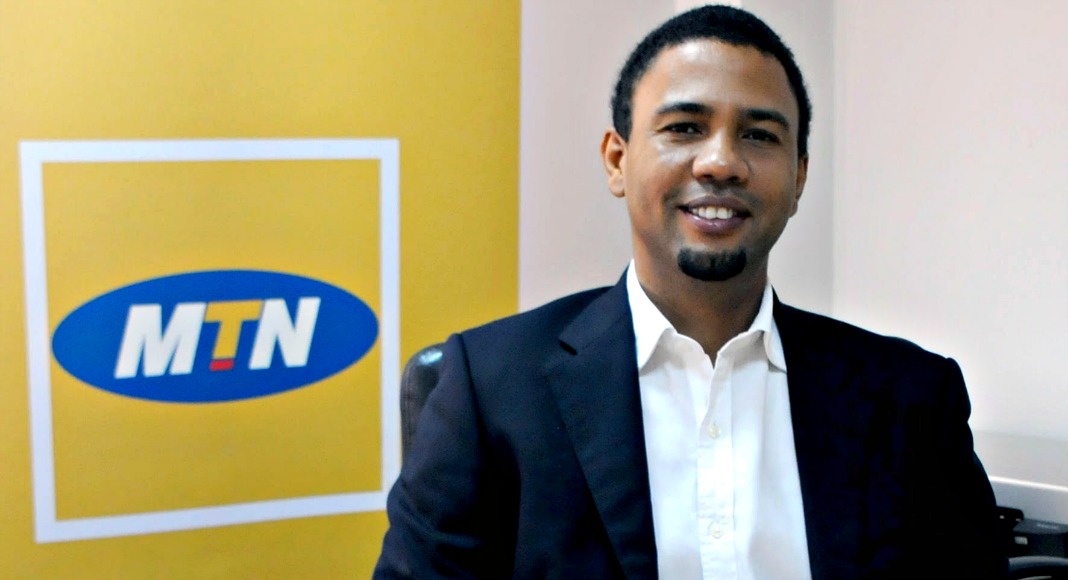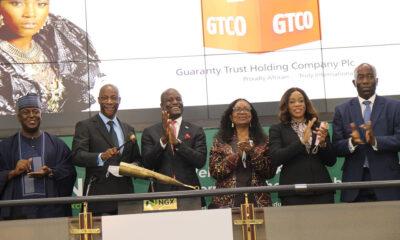MTN Nigeria Communications Plc, Africa’s leading telecommunications giant, reported a 7.6 million decline in subscribers to 68.9 million in the first half of the year.
MTN Nigeria reported in its unaudited financial statement released on Friday and obtained by Investors King.
MTN Nigeria Key Highlights
• Mobile subscribers declined by 7.6 million to 68.9 million, impacted by the regulatory restrictions on new SIM sales and activations
• Active data users declined by approximately 52,000 to 32.5 million
• Service revenue was up by 24.1% to N790.3 billion
• Earnings before interest, tax, depreciation, and amortisation (EBITDA) grew by 27.6% to N417.2 billion
• EBITDA margin improved by 1.4 percentage points (pp) to 52.7%
• Capital expenditure was up by 39.1% to N186.4 billion (up 50.6% to N114.5 billion excluding right of use [RoU] assets)
• Dividend per share of N4.55 kobo, up 30%.
Speaking on the results, MTN Nigeria CEO, Karl Toriola, said “In the first half of 2021, we made good progress strengthening the resilience of the business, managing the impact of the COVID-19 pandemic and enhancing support to our people, customers and other stakeholders. We extended our commitment to the Coalition Against Covid-19 (CACOVID) with an additional N3 billion contribution over a two-year period, half of which has already been paid.
This is in support of efforts to promote the health and security of Nigerians, as we navigate our way through the pandemic; and in line with our Y’ello Hope initiatives through which we provided support to our broad base of stakeholders to the value of approximately N25 billion in 2020.
Our progress towards achieving greater business resilience is reflected in the upgrade by Global Credit Ratings (GCR) of our national scale long-term issuer rating to AAA and affirmation of our national scale short-term rating of A1+ with a stable outlook. This puts MTN Nigeria on the highest possible GCR scale for short-term and long-term ratings, providing a solid platform for growth.
2021 marks the 20th anniversary of MTN’s presence in Nigeria. As we celebrate this milestone, we are pleased to announce that our Board of Directors has approved our participation in the Road Infrastructure Tax Credit (RITC) Scheme. This is in response to Government’s drive towards public-private partnerships in the rehabilitation of critical road infrastructure in Nigeria. We intend to participate in the restoration and refurbishment of the Enugu-Onitsha Expressway. Conversations in this regard have already commenced, and further announcements will be made in due course.
In line with our desire to plant deeper and more permanent roots in Nigeria, we have also initiated plans to commission a purpose-built, state of the art MTN Head Office, designed to act as a central hub for our network, a catalyst for creativity and innovation, and a showcase for the flexible working structures that are driving
efficiency gains in this new normal working environment. Aligned with our wider commitment to environmental sustainability, it will meet the highest global environmental standards, demonstrating the role of green technology in our future.
Following MTN Group’s stated intention to sell down up to 14% of its investment in MTN Nigeria, subject to market conditions over the medium-term, MTN Nigeria’s shareholders approved an equity shelf programme at the last Annual General Meeting.
This will facilitate a process to increase ownership of the Company by more Nigerian retail and institutional investors. Alongside this, we further localised our predominantly Nigerian management team with the appointment of Nigerians to two key senior positions (Chief Marketing Officer and Chief Information Officer) previously held by expatriates.
MTN Nigeria continues to invest in improved world class services and its network, accelerating the expansion of our 4G coverage and providing home broadband. As part of our rural connectivity programme, we plan to connect approximately 1,000 rural communities to our network this year with additional 2,000 communities in
2022.
We are delighted that these are translating into strong operational performance in line with the objectives of Ambition 2025. In the next 3 years, we will invest over N600 billion to expand broadband access across the country in support of Government’s Broadband Plan.
Operationally, our mobile subscribers closed H1 at 68.9 million, down 9.9% from December 2020. This was due to the regulatory restrictions on new SIM sales and activations, which was lifted on 19 April 2021. Although the initial run-rate of additions has been slower than usual due to new process requirements, we anticipate
growth to normalise in the short-term as more of our acquisition centres are certified for SIM registration.
Finally, our Board of Directors has approved an interim dividend of N4.55 kobo per share to be paid out of distributable net income. This represents a growth of 30% over N3.50 kobo per share paid in H1 2020.”


 Naira4 weeks ago
Naira4 weeks ago
 Naira4 weeks ago
Naira4 weeks ago
 Travel3 weeks ago
Travel3 weeks ago
 Jobs4 weeks ago
Jobs4 weeks ago
 Naira3 weeks ago
Naira3 weeks ago
 Naira3 weeks ago
Naira3 weeks ago
 Investment4 weeks ago
Investment4 weeks ago
 Travel4 weeks ago
Travel4 weeks ago

























